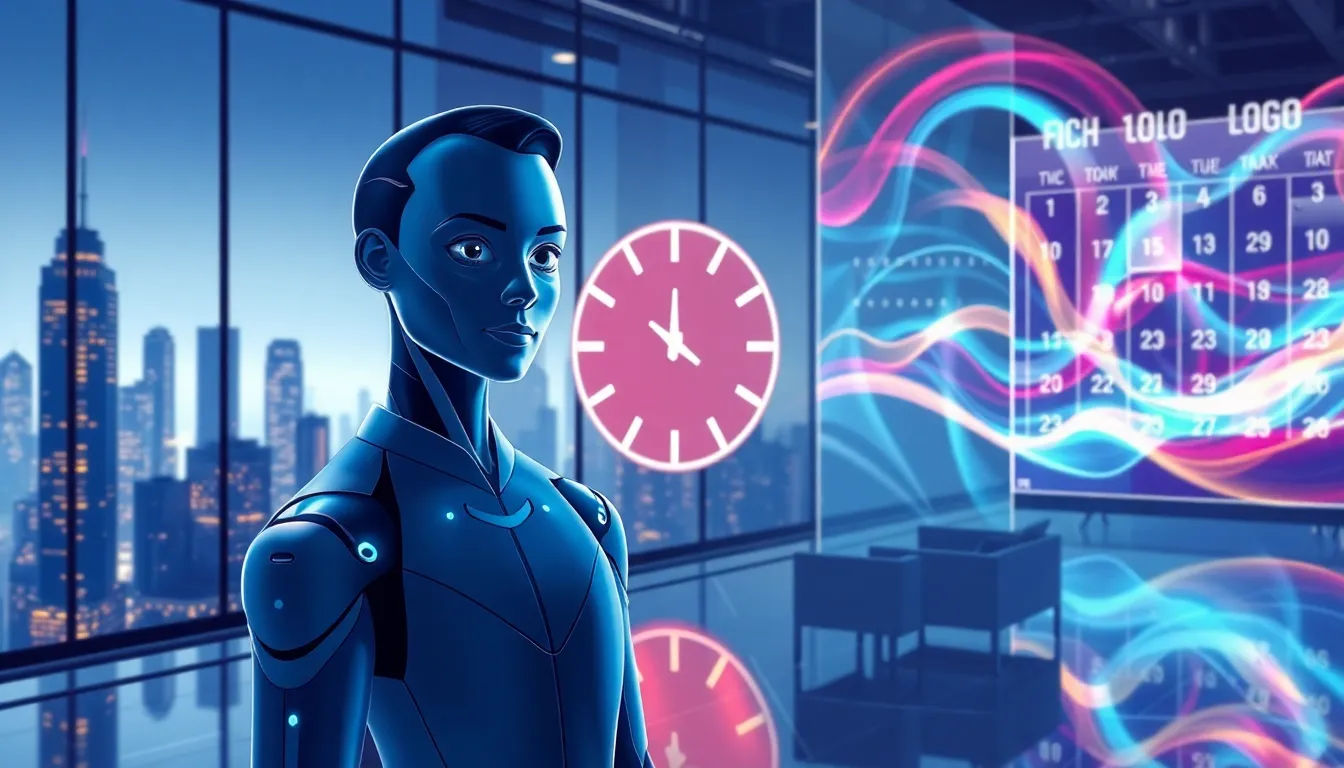Back to blog
"AImend Appointments: Leveraging AI for Reduced No-Shows and Delays"
Introduction to AI-Powered Receptionists
Artificial intelligence (AI) has revolutionized various aspects of our lives, and one of the areas that has seen significant improvements is appointment scheduling. Traditional scheduling systems often rely on manual data entry, paper-based records, and phone calls, which can lead to inefficiencies, delays, and no-shows. To address these challenges, AI-powered receptionists have emerged as a game-changer in the world of appointment scheduling. These intelligent systems can automate tasks, streamline communication, and provide personalized experiences, making them an attractive solution for businesses and organizations.
AI receptionists are designed to mimic human-like interactions, using natural language processing (NLP) and machine learning algorithms to understand and respond to user queries. They can be integrated with existing systems, such as calendars, customer relationship management (CRM) software, and electronic health records (EHRs), to provide a seamless and efficient scheduling experience. With AI receptionists, businesses can reduce the administrative burden on their staff, minimize errors, and enhance the overall patient or customer experience.
Pros of AI Receptionists in Appointment Scheduling
AI receptionists offer several benefits that make them an attractive solution for appointment scheduling. Some of the key advantages include:
Automated Scheduling: AI receptionists can automatically schedule appointments, reducing the need for manual data entry and minimizing errors.
Personalized Experiences: AI-powered systems can provide personalized experiences for patients or customers, taking into account their preferences, medical history, and other relevant factors.
Real-time Updates: AI receptionists can provide real-time updates and reminders, reducing no-shows and delays.
Streamlined Communication: AI-powered systems can streamline communication between patients, customers, and staff, reducing phone calls and emails.
Predictive Analytics: AI receptionists can analyze data and provide predictive insights, helping businesses to optimize their scheduling processes and improve resource allocation.
Benefits of Implementing AI Receptionists
Implementing AI receptionists can bring numerous benefits to businesses and organizations. Some of the key advantages include:
Reduced No-Shows: AI receptionists can reduce no-shows by providing personalized reminders and updates, helping patients or customers to stay on track with their appointments.
Improved Scheduling Efficiency: AI-powered systems can optimize scheduling processes, reducing wait times and minimizing delays.
Enhanced Patient or Customer Experience: AI receptionists can provide personalized experiences, taking into account individual preferences and needs.
Increased Staff Productivity: By automating routine tasks, AI receptionists can free up staff to focus on more complex and high-value tasks.
Cost Savings: AI receptionists can help businesses to reduce costs associated with manual data entry, phone calls, and other administrative tasks.
Automated Scheduling Process for Reduced No-Shows
AI receptionists can automate the scheduling process, reducing the need for manual data entry and minimizing errors. This can lead to a significant reduction in no-shows, as patients or customers are more likely to receive reminders and updates about their appointments. Additionally, AI-powered systems can analyze data and provide predictive insights, helping businesses to identify patterns and trends that may contribute to no-shows.
For example, an AI receptionist can send personalized reminders to patients or customers, taking into account their preferred method of communication, such as email, text message, or phone call. The system can also provide real-time updates, such as changes to the appointment schedule or cancellations, helping to minimize disruptions and reduce no-shows.
Advanced Features of AI Receptionists
AI receptionists offer a range of advanced features that can enhance the appointment scheduling experience. Some of the key features include:
Real-time Tracking: AI-powered systems can provide real-time tracking, allowing businesses to monitor appointments and make adjustments as needed.
Integration with Existing Systems: AI receptionists can integrate with existing systems, such as calendars, CRM software, and EHRs, to provide a seamless and efficient scheduling experience.
Predictive Analytics: AI-powered systems can analyze data and provide predictive insights, helping businesses to optimize their scheduling processes and improve resource allocation.
Customizable Workflows: AI receptionists can be customized to meet the specific needs of a business, allowing for tailored workflows and processes.
Scalability: AI-powered systems can scale to meet the needs of growing businesses, providing a flexible and adaptable solution for appointment scheduling.
Real-time Updates and Tracking
AI receptionists can provide real-time updates and tracking, allowing businesses to monitor appointments and make adjustments as needed. This can help to minimize delays and reduce no-shows, as patients or customers are more likely to receive timely reminders and updates about their appointments. Additionally, AI-powered systems can analyze data and provide predictive insights, helping businesses to identify patterns and trends that may contribute to delays or no-shows.
For example, an AI receptionist can provide real-time updates about appointment schedules, including changes to the schedule or cancellations. The system can also track patient or customer engagement, providing insights into their preferences and behaviors. This information can be used to optimize scheduling processes, improve resource allocation, and enhance the overall patient or customer experience.
Overcoming Adoption Challenges and Measuring Success
While AI receptionists offer numerous benefits, there are also challenges associated with their adoption. Some of the key challenges include:
Technical Complexity: AI-powered systems can be technically complex, requiring significant investment in infrastructure and training.
Cost: AI receptionists can be expensive to implement and maintain, particularly for small or medium-sized businesses.
Change Management: Implementing AI receptionists can require significant changes to business processes and workflows, which can be difficult to manage and implement.
Data Quality: AI-powered systems require high-quality data to function effectively, which can be a challenge for businesses with limited resources or outdated systems.
Security and Compliance: AI receptionists must comply with relevant regulations and standards, such as HIPAA or GDPR, which can be a challenge for businesses without significant expertise in these areas.
Common Pitfalls in AI Receptionist Implementation
Implementing AI receptionists can be challenging, and there are several common pitfalls that businesses should be aware of. Some of the key pitfalls include:
Inadequate Training: AI-powered systems require significant training to function effectively, which can be a challenge for businesses without significant resources or expertise.
Insufficient Data: AI receptionists require high-quality data to function effectively, which can be a challenge for businesses with limited resources or outdated systems.
Inadequate Integration: AI-powered systems must be integrated with existing systems, such as calendars, CRM software, and EHRs, to provide a seamless and efficient scheduling experience.
Security and Compliance: AI receptionists must comply with relevant regulations and standards, such as HIPAA or GDPR, which can be a challenge for businesses without significant expertise in these areas.
Change Management: Implementing AI receptionists can require significant changes to business processes and workflows, which can be difficult to manage and implement.
A Brighter Future with AI Receptionists - The Rise of Digital Scheduling
The future of appointment scheduling is digital, and AI receptionists are at the forefront of this revolution. As businesses continue to adopt AI-powered systems, we can expect to see significant improvements in efficiency, productivity, and patient or customer satisfaction. AI receptionists will play a critical role in this evolution, providing personalized experiences, streamlining communication, and optimizing scheduling processes.
As the technology continues to advance, we can expect to see even more innovative features and applications for AI receptionists. For example, AI-powered systems may be integrated with wearables, such as smartwatches or fitness trackers, to provide real-time updates and reminders. Additionally, AI receptionists may be used to analyze data and provide predictive insights, helping businesses to optimize their scheduling processes and improve resource allocation.
In conclusion, AI receptionists are transforming the world of appointment scheduling, providing a range of benefits that can enhance the patient or customer experience, improve efficiency, and reduce costs. As the technology continues to evolve, we can expect to see even more innovative applications and features for AI-powered systems. Whether you're a healthcare provider, a business owner, or simply a consumer, AI receptionists are an exciting development that promises to revolutionize the way we schedule appointments and interact with businesses.


